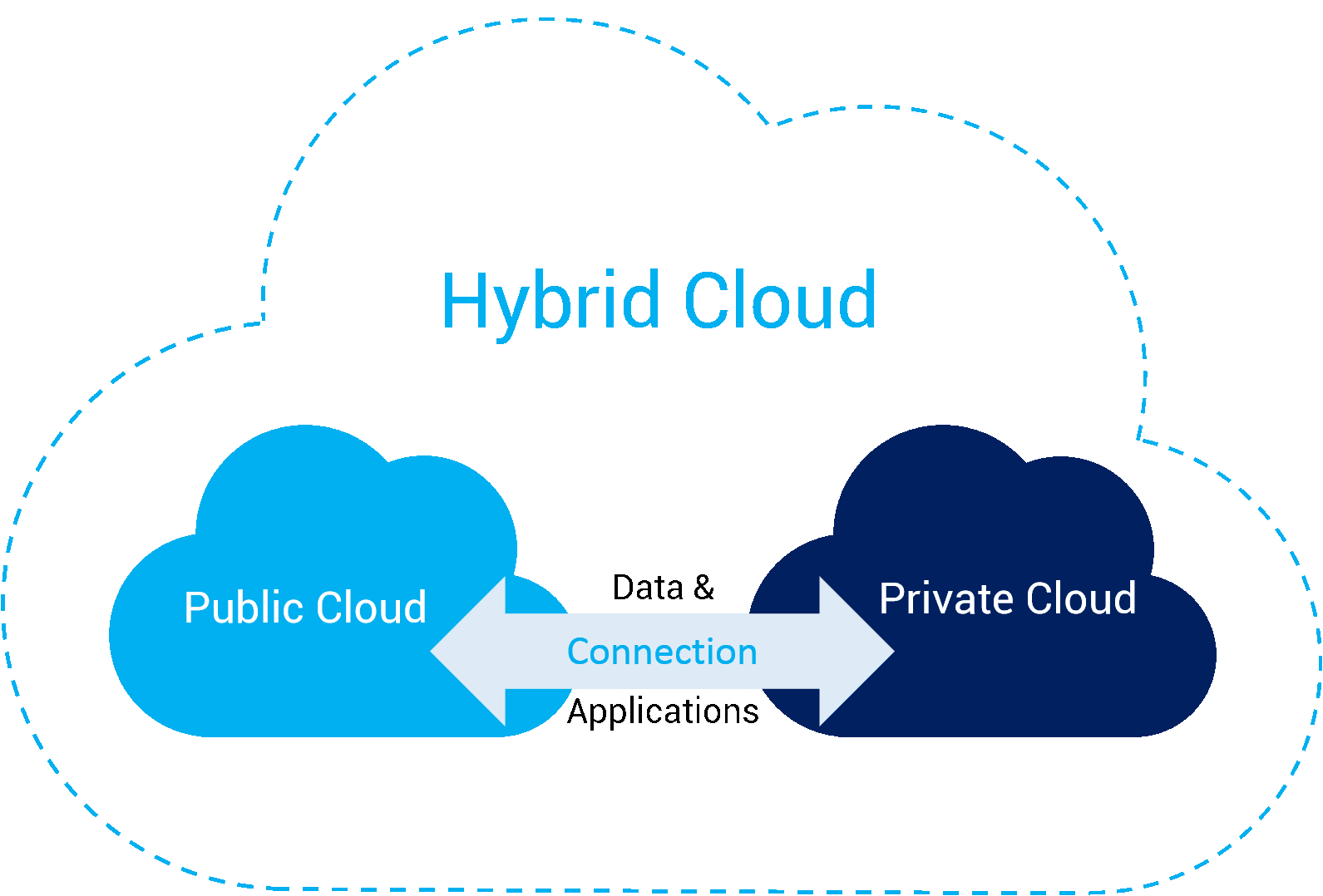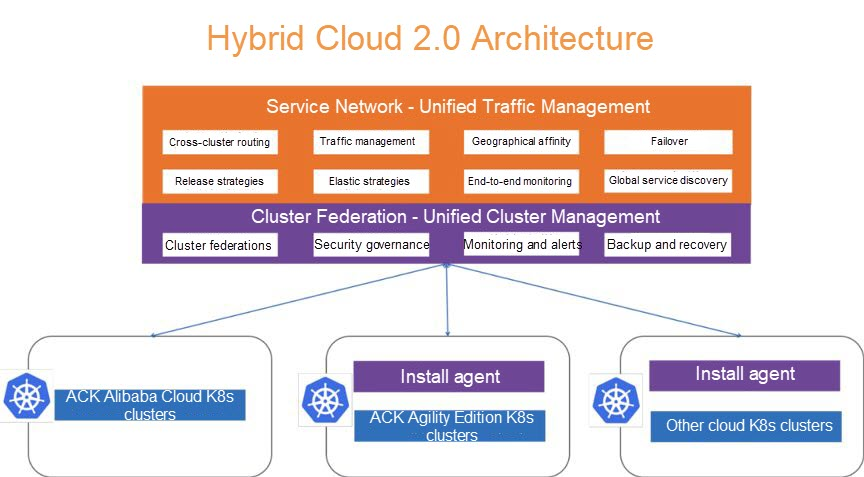By Shantanu Kaushik
The cloud computing and infrastructure associated with the hybrid cloud has made a swift shift as a mainstream solution. As enterprises and organizations today need solutions that cater to the evolved requirements of cloud management, the cloud computing approach had to evolve with it. The demand for an agile framework grew ten-fold. An environment that allows multi-cloud integration and a seamless shift of services to meet business transformation and expansion goals was desperately needed.
Alibaba Cloud took the call and developed a hybrid cloud solution that caters to enterprises and organizations that want to adapt and evolve. An environment like this needs to be capable of taking on any digital transformation needs. It should be able to update itself to meet industry-leading practices like Artificial Intelligence and machine learning. We discussed this topic in our previous article about the Alibaba Cloud Hybrid Cloud platform.
This approach led to a paradigm shift in innovation and escalated the evolution cycle rapidly. Enterprises can leverage the tools and services that are seamless in approach and have been deeply integrated into the Alibaba Cloud Hybrid Cloud platform.
With a rapid expansion of going digital or digital transformation, the evolution of business needs is at an all-time high. Traditional cloud computing scenarios couldn't keep up with the digitization choices of some organizations. The Hybrid Cloud solution came in and utilized the services of the public cloud and the security features of the private cloud to create a one-stop solution.
Every piece of technology or solution evolves over time. This mainly happens when a certain technology gets to the core of any business need and accelerates it for better business continuity, expansion, and profits. Communication and travel applications are the best examples of this scenario.
How can we leverage the high-investment solution and setup for productivity while churning out profits in a rapidly digitizing world?
At a point in time, the primary goal for any business or organization was to look at a cost-cutting perspective, but now, it has evolved to undertake accelerated evolution and agility. The core practices to respond and keep up with the business competition is to make a shift to a platform that promotes advanced practices like DevOps, microservices, automation, data analytics, business intelligence, machine learning, and AI.
This is an evolutionary stage where business transformation is now equal to digital transformation. With organizations just starting to make the shift, a rapid upgrade to a more expensive solution-based approach might seem far-fetched. With any architecture or platform, the foundation and core model of any practice is always profitability. The approach and goal to get there at any scale initially start with an agile and efficient practice that focuses on continuous innovation.
It all started with the evolution of the public cloud and its usage as a mainstream service. When these services started to make an impact on enterprise solutions, the idea to leverage the best of both worlds was born. Alibaba Cloud reacted quickly and began modeling their Hybrid Cloud platform concept. The concept included their public and private cloud solutions optimized with solutions, like DevOps, and products, like the Elastic Compute Service (ECS), Virtual Private Cloud (VPC), Server Load Balancer (SLB).
Alibaba Cloud has been constantly transforming its cloud services to better meet the needs of customers, such as the optimization of the highly-backed API Gateway and storage solutions. This has been the backbone that has enabled numerous enterprises to take on digital transformation.

While there is no industry-standard definition of what a hybrid cloud should be comprised of, it can easily be defined as a solution that combines the traditional and cloud approach to form a hybrid cloud.
Enterprises have started to build hybrid applications. These are hosted on traditional environments and share resources with the cloud part of the hierarchy. This has shifted the primary reason for organizations adopting a cloud setup. This reason used to be the infrastructure offered by the cloud partner, but after evolution, the focus shifted from infrastructure only to infrastructure with connectivity and integration. That's when Alibaba Cloud came up with the integration of DevOps, security service, and worked with data management systems to take the first step towards the evolution of Hybrid Cloud.
Hybrid clouds evolve automatically as the other associated cloud services evolve. The whole architectural upgrade can be thought of as upgrading small segments of a bigger cycle to achieve total upgradation. This involves a more centralized focus with different APIs for different systems to work together in harmony. API Gateway is the most advanced solution to integrate with the Hybrid Cloud platform for this particular reason.
When we talk about the application-centric approach of a solution, we are talking about a standard approach of migrating your applications and data from a traditional system to a cloud system. When using APIs, the whole scenario changes to ascertain a service-based approach that connects the traditional system with multi-cloud architecture.
With APIs, using containerized applications boosts security and availability, presenting a more scalable solution. This segment of evolution will make use of more upgraded container services. Alibaba Cloud has a great visualization that showcases this:

Alibaba Cloud and its team of experts came across many challenges that the organizations were facing when migrating their practices to the hybrid cloud. These challenges included a huge gap between the on-premises and cloud infrastructure. The resource and security requirements had barriers to overcome for a proper deployment and usage scenario.
The Alibaba Cloud Container Service for Kubernetes came with the hybrid cloud 2.0 architecture as depicted above. The new architecture enables the installation of a Kubernetes cluster running in an on-premise data center. This enables the Container Service to manage the cluster on the cloud.
Hybrid Cloud is rapidly evolving. As I pointed out, Hybrid Cloud evolves as the service and products associated with it evolve. With that being said, what could be the next big thing? It could be a functional practice or a new solution altogether that is responsible for the next paradigm shift. All we can do is hypothesize. From what I can gather, it seems Data as a Service (DAAS) could be the next revolutionary thing with the cloud or Hybrid Cloud. It all depends on the demand, the delivery of information, and the things in between.
Alibaba Cloud has been working on all aspects of their cloud services architecture. The whole platform and architecture work in sync and is responsible for the rapid evolution. Hybrid Cloud has changed the way enterprises work and use their data. The hybridity of services over the hybrid platform has counted for an incremental paradigm shift.
The views expressed herein are for reference only and don't necessarily represent the official views of Alibaba Cloud.

2,599 posts | 762 followers
FollowAlex - July 9, 2020
Alibaba Clouder - May 27, 2020
Alibaba Clouder - November 8, 2018
Alibaba Cloud ECS - March 10, 2021
Alibaba Cloud MaxCompute - May 5, 2019
Alibaba Cloud MaxCompute - December 22, 2021

2,599 posts | 762 followers
Follow Hybrid Cloud Storage
Hybrid Cloud Storage
A cost-effective, efficient and easy-to-manage hybrid cloud storage solution.
Learn More Hybrid Cloud Distributed Storage
Hybrid Cloud Distributed Storage
Provides scalable, distributed, and high-performance block storage and object storage services in a software-defined manner.
Learn More Hybrid Cloud Solution
Hybrid Cloud Solution
Highly reliable and secure deployment solutions for enterprises to fully experience the unique benefits of the hybrid cloud
Learn More Networking Overview
Networking Overview
Connect your business globally with our stable network anytime anywhere.
Learn MoreMore Posts by Alibaba Clouder